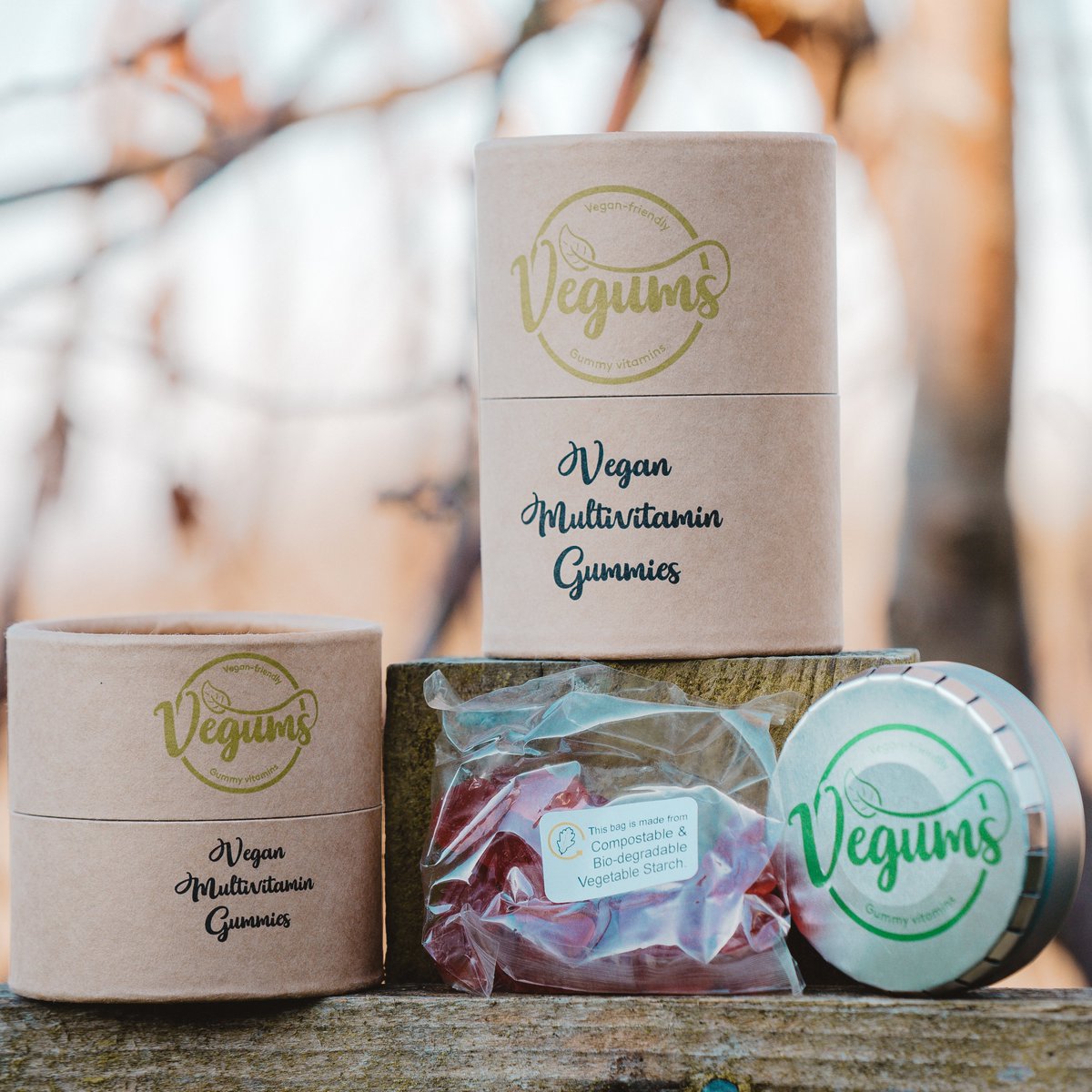Veganuary is Just The Beginning

Vegan? Dietary restrictions?
Interested in looking after your health? Not a fan of pills? Scrummy, yummy, gummy vitamins may be the thing for you. All jokes and rhymes aside, an increasing number of us are interested in looking after the environment (for obvious reasons) and a vegan diet can help us do this. A well-planned, varied and balanced vegan diet can contain all the nutrients you need while using less space on industrialised farming. It’s also not just vegans that have problems getting enough vital vitamins, those of us who suffer from lactose intolerance, coeliac disease, gastric bypasses or other medical conditions can have problems getting enough vitamins too.
In this article, we will focus on veganism in honour of Veganuary 2021.
What is Veganism?
Veganism rejects the use of animal products completely. While vegetarians still eat dairy products and eggs, vegans do not.
There are a few variations on Veganism:
Dietary Vegans (aka strict vegetarians) do not eat meat, fish, dairy products, eggs or animal-derived substances (honey, pork gelatine, lactose, etc). They follow a vegan diet but may be found wearing leather.
Ethical Vegans (aka moral vegetarians) do not eat meat, fish, dairy products, eggs or animal-derived substances, they also bring the vegan philosophy into other areas of their lives and oppose the use of animals and animal products in any area of their lives. They do not wear leather or wool and tend to avoid aquariums and zoos as they do not support animal exploitation in any way.
Environmental Vegans are conservation-focused and avoid animal products on the basis that current industrial farming methods are damaging to the environment and inherently unsustainable long term.
Vegan diets – Suitable for all?
There are many advocates that believe well-planned vegan diets are perfect for everyone. There are also many critics of vegan diets that feel that a purely plant-based diet can leave you deficient in many vital vitamins such as vitamin B12, calcium, omega-3 and vitamin D.
Truth is, it is very easy to eat no animal products… short term. Long term though, the loss of certain vitamins (that are easy to acquire through animal products) can leave you with severe neurological damage and can even lead to death if left untreated. Long term veganism takes a bit more planning:you have to take account of your nutritional requirements and ensure that your daily food intake meets your needs. It takes planning, dedication and a huge, heaped helping of nutritional know-how.
A lot of vegan foods are fortified with extra vitamins. This doesn’t necessarily meet the recommended intakes though, so there are also dietary supplements widely available. You can also maximise your dietary intake by following vegan recipe apps, making the vegan diet an easier option to take and follow too. Vitamin B12 is an essential vitamin that does not occur in adequate quantities in plants. It’s technically not produced by animals either though: it’s produced by bacteria in soil, which ends up in the gut of herbivores that are eaten for meat. Children and pregnant women are particularly at risk of B12 deficiency as they need it for healthy growth patterns. It plays a key role in the nervous system, so if you’re feeling fatigued or struggling to concentrate then a B12 deficiency might be the culprit! Many vegan diets, therefore, advise taking dietary supplements that contain B12 to prevent B12 deficiency.
B12 isn’t the only risk area, though. The following can be found in plants, but only in relatively small amounts:
Selenium (usually in meat and seafood)
Iodine (usually in seafood and dairy products)
Vitamin D (usually found in oily fish and cow’s milk)
Folic acid (highest in eggs and liver)
Calcium (highest in dairy products)
Iron (highest in red meat)
Zinc (usually found in meat and shellfish)
It can be difficult to have to take vitamin tablets every day, but gummy vitamin supplements look, taste, and feel just like that old family favourite: gummy bears (but good for you!). Multivitamins contain all the vitamins that are most difficult to acquire from a vegan diet in one squishy, sweetie, supplement.
VEGUMS
Vegums was dreamed up in 2018 by a duo of vegan pharmacists, Abdul and John, who had trouble getting enough essential vitamins into themselves and their families (kids can be so picky, big kids like John are worse). They pooled their pharmacological and vegan knowledge and came up with their flagship line: The Multivitamin for Vegans. Suitable for everyone from 3+, it makes looking after yourself a treat instead of a chore. Abdul and John, both being ethical vegans, chose 100% plastic-free & recyclable or reusable packaging. You can opt to receive a cardboard storage tube and handy metal carry tin with your first order. After that, you’ll receive refill bags made from Natureflex, which is completely compostable. Delivery routes (free to the UK, with worldwide shipping available) from the North West of England are as environmentally friendly as possible too of course! You can order the Multivitamin for Vegans, Fish-Free Omega-3 and Iron gummies on a subscription or as a one-off here.

The Vegan Society (a UK based educational charity thought to be the oldest vegan society in the world) does not recommend you avoid prescribed medication based on it containing animal products or being tested on animals. Your health and wellbeing come first! The Vegan Society DOES recommend that you let your doctor know if you’ve switched diets, and then you can discuss non-animal product based replacements and dietary supplements.

If you’ve got any questions or comments, feel free to let us know via the “contact us” form at the bottom of the page! We’d love to hear from you.